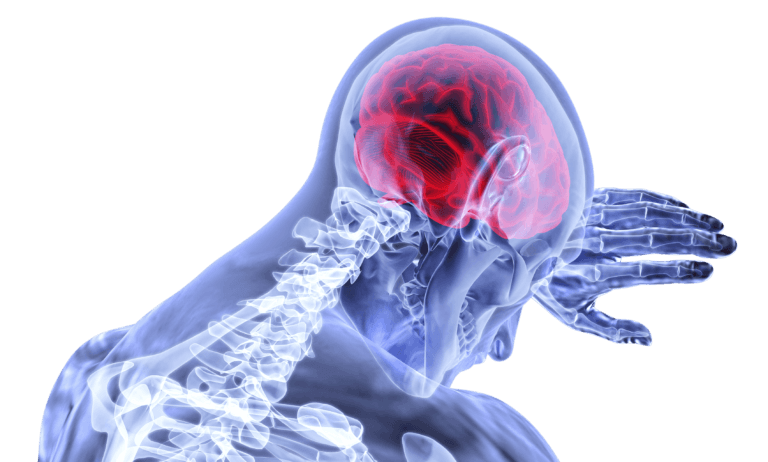VA Releases New Findings on the Connection Between TBI and Dementia

CCK Law: Our Vital Role in Veterans Law
On June 14, 2019, VA released new findings regarding the connection between traumatic brain injury (TBI) and dementia. Such findings came from a study, “Association of Mild TBI With and Without Loss of Consciousness with Dementia in US Military Veterans” (2018), conducted by VA and the Kristine Yaffe Lab at the University of California, San Francisco.
Traumatic Brain Injury (TBI)
TBI is a complex physiological condition that can arise when a brain experiences trauma, either directly or indirectly, during any of a variety of moderate to catastrophic events. Importantly, TBI is common in both veteran and civilian populations. The current goal of TBI research is to develop treatment, tools, and resources to help those affected by TBI return to their previous, or close to previous, quality of life and cognitive ability. According to VA, TBI among veterans is a key focus area of physical and mental health care. VA conducts research on a regular basis to help further understand the intricacies of TBI symptoms and effects. Over the past decade, researchers and clinicians have confirmed that TBI may be a risk factor for dementia, but they have yet to determine why. Furthermore, prior studies have linked moderate and severe TBI with increased dementia risk; however, the association between dementia and mild TBI, particularly mild TBI without loss of consciousness, remains unclear.
About the Study
The recent study is part of the Chronic Effects of Neurotrauma Consortium (CENC) – a VA and Department of Defense (DoD) funded research project devised to address the long-term effects of mild TBI in military service members and veterans. It was one of the largest studies in the US, comprised of 178,779 veterans diagnosed with TBI in the Veterans Health Administration (VHA) and 178,779 patients in a propensity-matched comparison group. Researchers identified TBIs through the Comprehensive TBI Evaluation database, which is restricted to Iraq and Afghanistan veterans, and the National Patient Care Database, which includes veterans of all eras. The severity of each TBI was based on the most severe injury recorded and classified as (1) mild without loss of consciousness, (2) mild with loss of consciousness, (3) mild with loss of consciousness unknown, or (4) moderate or severe. International Classification of Diseases, Ninth Revision codes were used to identify dementia diagnoses during follow-up periods. Overall, the objective of the study was to examine the association between TBI severity, loss of consciousness, and dementia diagnosis in veterans.
Results and Findings: TBI Associated with Increased Risk of Dementia
Again, the study compared dementia diagnosis in veterans who had experienced TBI with or without loss of consciousness and control participants without TBI exposure. The study found that a total of 4,698 veterans (2.6 percent) without TBI developed dementia compared with 10,835 (6.1 percent) of those with TBI. These results indicate that TBI with and without loss of consciousness are both associated with a heightened risk of developing dementia. Importantly, even mild TBI without loss of consciousness was associated with more than a twofold increase in the risk of a dementia diagnosis and long-term neurodegenerative consequences. Further studies of strategies to determine mechanisms, prevention, and treatment of TBI-related dementia in veterans are urgently needed.
Future Research Regarding TBI and Dementia
The VA health care system recognizes that more research is needed to further understand and provide the best health care to veterans with TBI. According to VA, the study suggests that veterans with TBI, particularly older veterans, should be monitored and screened at regular intervals for any signs of memory changes. Research collaboration among VA, universities, and national organizations such as the National Institutes of Health will reportedly continue to expand on knowledge of TBI and related conditions and opportunities to prevent and treat them. In line with this, VA’s Sierra Pacific Mental Illness Research, Education, and Clinical Center (VISN 21 MIRECC) is currently working to identify risk factors for cognitive decline in older veterans and to develop and implement novel countermeasures to minimize this decline. Although an association between TBI and increased risk of dementia has been established, VA maintains that TBI is only one of many risk factors for dementia. Other risk factors, including genetic markers, are being studied as well. As such, it is important for veterans to maintain an overall healthy lifestyle, monitor their heart health, and try to remain mentally and physically active.
VA Disability Benefits for TBI
VA evaluates a TBI based on the residual symptoms a veteran is currently experiencing as a result of the trauma, according to an Evaluation of Cognitive Impairment and Other Residuals of TBI not Otherwise Classified, under 38 CFR § 4.12a. VA rates these residuals on a scale of 0, 1, 2, 3, or total, with each of these increments corresponding to a disability rating:
Presumptive Conditions Associated with TBI
VA also recognizes an association between TBI and the onset of several other health conditions. As a result, VA presumes service connection under the following circumstances:
- If dementia develops within 15 years of a moderate or severe TBI
- If Parkinson’s disease develops at any point after a moderate or severe TBI
- If depression manifests within 3 years of a moderate or severe TBI, or within 12 months of a mild TBI
- If diseases of hormone deficiency from hypothalamo-pituitary changes manifest within 12 months of a moderate or severe TBI.
About the Author
Share this Post
